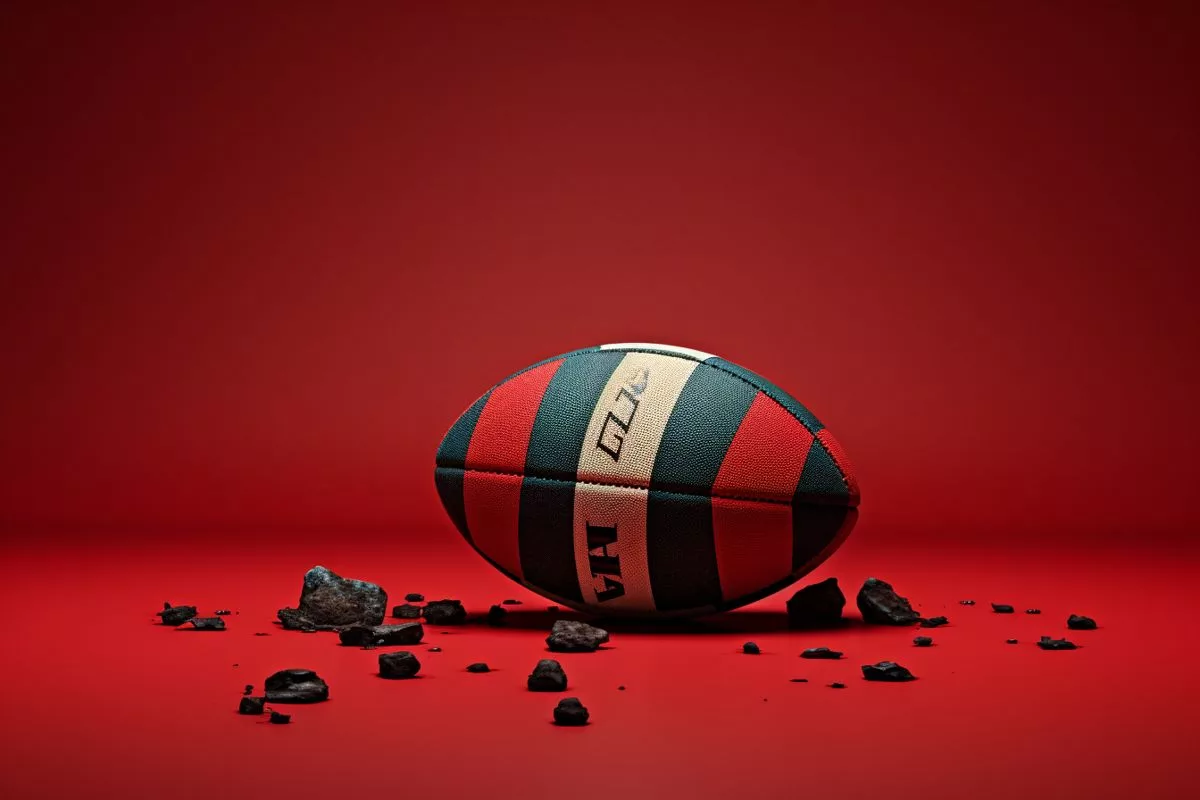Wayne Barnes, a renowned rugby referee, presided over the controversial World Cup final between the Springboks and All Blacks, making several debatable decisions, including a red card issued to All Blacks captain Sam Cane via the bunker review system. The All Blacks registered a formal complaint with World Rugby, citing these decisions, and a disallowed try for the All Blacks was found to have been unjustly dismissed. Despite the controversy, New Zealand recognized Barnes’ skill and experience and emphasized the need for transparency and open discussions in the sport.
What was the controversy surrounding Wayne Barnes’ refereeing in the World Cup final?
The red card issued to All Blacks captain Sam Cane via the bunker review system was amongst the controversial decisions made by Wayne Barnes in the Springboks vs All Blacks match. The All Blacks registered a formal complaint with World Rugby, citing other debatable decisions. One controversial try for the All Blacks was found to have been unjustly dismissed due to an assumed rule violation. Despite the controversy, New Zealand recognized Barnes’ skill and experience, emphasizing the need for transparency and open discussions between teams and governing bodies.
The Last Call of a Renowned Rugby Referee
The illustrious career of Wayne Barnes, one of the most experienced referees in global rugby, came to its conclusion as he presided over the emotionally intense World Cup match between the Springboks and All Blacks. The match continues to be a hot topic of discussion within the rugby fraternity even after the final whistle.
Barnes, who is celebrated for his exceptional grasp of the game, was handed the significant duty of supervising this eagerly awaited final match. Nonetheless, the red card issued to All Blacks captain, Sam Cane, was amongst the controversial decisions of the game. This decision was made via the bunker review system rather than on-field referees.
The All Blacks were far from placated with this ruling and several others that followed, which drove them to register a formal complaint with World Rugby. As narrated by their departing coach, Ian Foster, the team has furnished a dossier to World Rugby, asking for explanations on certain debatable decisions.
Unfolding Controversy and the Elusive Details
Foster was tactful and avoided detailing the specific issues that irked the All Blacks. Nevertheless, he emphasized that those intricacies would be quite noticeable to those deeply engaged with the sport.
A recent disclosure by a New Zealand-based news outlet has added an interesting dimension to this story. World Rugby, according to their report, has privately admitted that a disallowed try should have been accepted for the All Blacks. Aaron Smith’s try, which was ruled out in the final, was found to have been unjustly dismissed due to an assumed rule violation, an allegation that World Rugby appears to be keeping from public awareness.
This contentious try took place in the 54th minute of the thrilling final at Paris’ Stade de France, following an impressive run by Richie Mo’unga. The game veered towards controversy when TMO Tom Foley highlighted a knock-on at a lineout, prompting Barnes to disallow the try. The confusion stemmed from the fact that the knock-on occurred four phases before Smith’s try, while the TMO is only authorized to review two phases prior to a knock-on in a try’s build-up.
An Acknowledgement of Pressure and A Plea for Transparency
Despite this controversy, New Zealand has been cautious not to lay blame entirely on the referees. They are aware of the enormous pressure that comes with officiating a match of such importance.
Coach Foster expressed his disagreement with some of the decisions in the final, but continued to recognize Barnes’ skill and experience. Despite the differing opinions, Foster upheld that Barnes’ capability as a referee and his integrity remain unblemished.
This incident serves as a powerful reminder of the complexities and pressures that saturate the world of rugby, where every decision can dramatically swing the balance. It also highlights the ongoing need for transparency and open discussions between teams and governing bodies, to ensure that the essence of the game remains as intact as the quest for victory.
In conclusion, the match between the All Blacks and the Springboks will always be remembered in the chronicles of World Rugby as an exceptional display of talent, strategy, and, undeniably, controversy.
1. What were some of the controversial decisions made by Wayne Barnes in the World Cup final?
Some of the controversial decisions made by Wayne Barnes in the World Cup final included the red card issued to All Blacks captain Sam Cane and a disallowed try for the All Blacks that was found to have been unjustly dismissed.
2. What did the All Blacks do following the controversial decisions made in the World Cup final?
The All Blacks registered a formal complaint with World Rugby, citing the controversial decisions made by Wayne Barnes in the World Cup final.
3. What did World Rugby admit in private regarding a disallowed try in the World Cup final?
World Rugby privately admitted that a disallowed try should have been accepted for the All Blacks. Aaron Smith’s try was ruled out in the final and was found to have been unjustly dismissed due to an assumed rule violation.
4. Why did New Zealand emphasize the need for transparency and open discussions in the sport following the controversial World Cup final?
New Zealand recognized Wayne Barnes’ skill and experience, emphasizing the need for transparency and open discussions between teams and governing bodies in the sport of rugby.
5. How did Coach Foster react to the controversial decisions made in the World Cup final?
Coach Foster expressed his disagreement with some of the decisions in the final, but continued to recognize Barnes’ skill and experience. He upheld that Barnes’ capability as a referee and his integrity remain unblemished.
6. What does the World Cup final controversy serve as a reminder of in the world of rugby?
The World Cup final controversy serves as a reminder of the complexities and pressures that saturate the world of rugby, where every decision can dramatically swing the balance. It also highlights the ongoing need for transparency and open discussions between teams and governing bodies.












